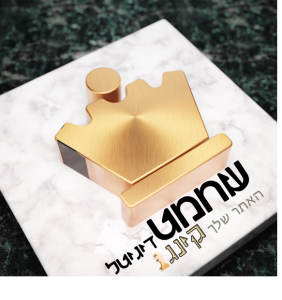THE POWER OF PREPARATION
“The first day of counting one’s sins”
THE POWER OF PREPARATION
In Parshat Emor, the Torah presents a section on Sukkot. That
section, includes the halachot of the “arba minim” — the
“Four Species” — i.e., the etrog and the items that we take with it
The Torah presents these mitzvot with the following verse:
U’lekach’tem la’chem ba’yom ha’rishon … “[“You shall take”
. on the first day”]. Medrash Raba asks: “Why do you speak of taking
the arba minim on the “first day”? In reality, the day on which we
begin taking the arba minim is the fifteenth day [of the month of
Tishrei].
The Midrash explains”“Take for yourself on the first day–:
Rishon Le’cheshbon Avonos” – “The first day of the accounting for
one’s sins” Thus the first day of Sukkot is also the first day on which HaShem resumes reckoning our accounts with Him.
The Medrash (cited by the Tur Shulchan Aruch OH 581) explains that by the
time Yom Kippur arrives we’ve been forgiven. The four days between Yom
Kippur and Sukkot are extremely busy times in preparation for the
Festival. People are working on their Sukkah, selecting arba minim
doing the Igud on the lulav and preparing special food and clothing for the Holiday. People are so occupied during these four days that they don’t have the time to sin
The much diminished level of aveirot (sins) continues until the first
day of Sukkot and might increase then!
.
The Taz (Shulchan Aruch OH581) asks why the Medrash assumes that the four days of spent doing the mitzvot — e.g. arba minim –pertaining to the Holiday are
yoseir gedolim” [on a higher level] than the actual mitzvah of taking
the arba minim. The Taz asked: How could that be? How can the eve of
Sukkot be holier than Sukkot? Why should the days of preparation for the Mitzvah of Succot be of greater value than the actual day that we perform the Mitzvah?! The answer of course is that the days
before it we don’t sin but on Sukkot we sin. Apparently, the Taz found
the idea unthinkable, and left it at that.
The Sfat Emet [Haazinu 5634] refers to the query of the Taz and explains that we see from here the power of preparation is more than that of the actual performance of the mitzvah! Preparing oneself to perform the mitzvah
involves getting into a proper intellectual and emotional state.
Achieving that state may take a long time — the Sfat Emet actually says “le’olam”
forever. That state of preparation and striving to come closer to
HaShem keeps a person at a high level of spirituality. By contrast, a
person can perform the mitzvah itself within a short time. Indeed, Sfat
Emet maintains that getting to a state of readiness for doing a
mitzvah will possibly enable its performance correctly He asks: who
can do a mitzvah properly [” ke’mish’pata “] The answer to his
rhetorical question is that no one can perform a Mitzvah perfectly! However, preparing oneself to perform mitzvot with focus and joy, is within our grasp-effort is the key
Thus the four days between Yom Kippur and Succot have special holiness
being days of grace: days without sin

 שחמט דיגיטל
שחמט דיגיטל